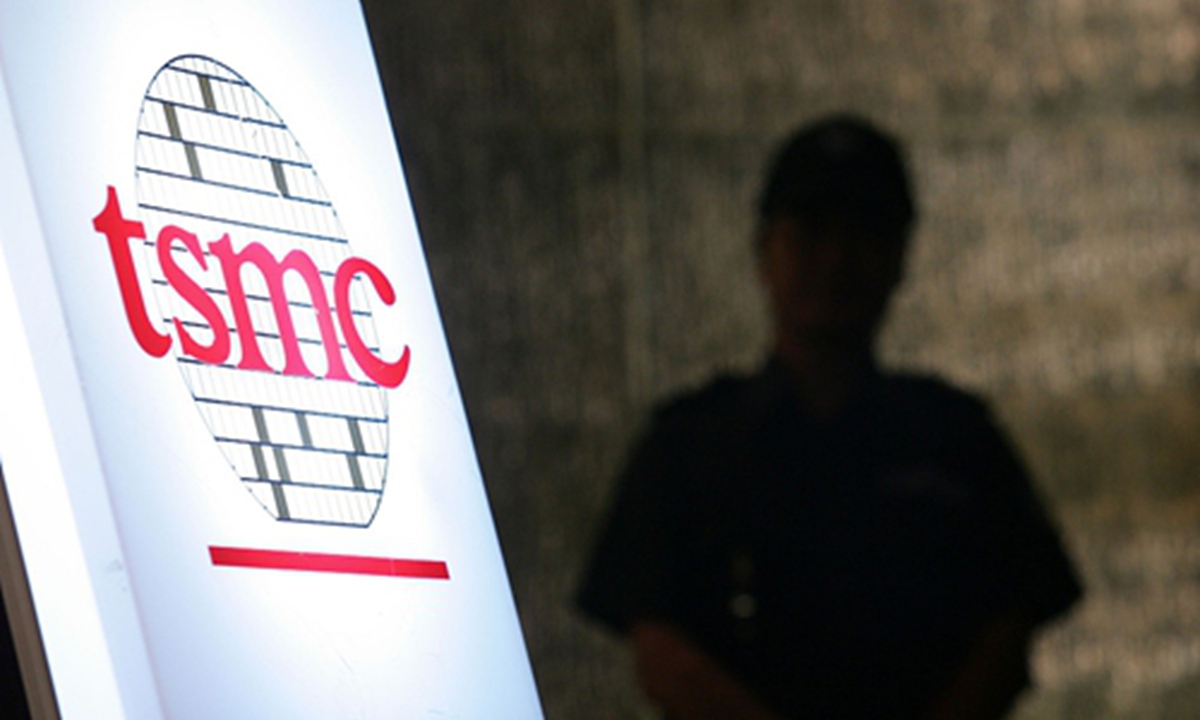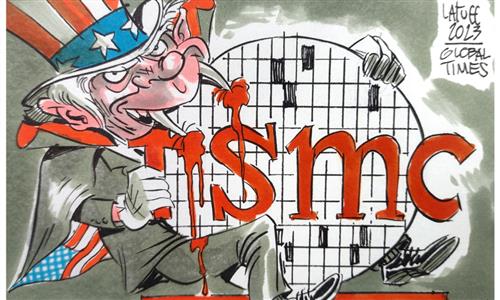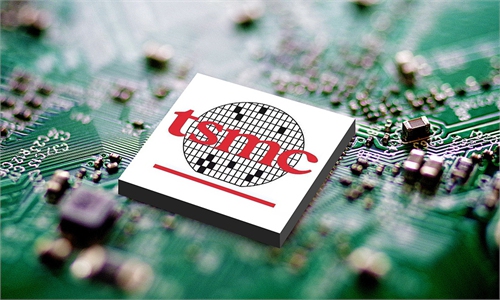
TSMC File photo
Taiwan Semiconductor Manufacturing Co (TSMC) officially opened Japan's most advanced wafer fab in Kumamoto on Saturday, Taiwan media outlets reported.However, the plant, which has been long anticipated by politicians on the island of Taiwan and in Japan, may find it hard to bring the expected economic benefits to its parent company.
Many believe the plant's political significance outweighs its economic role. Lai Ching-te, who recently won the regional election, expressed gratitude to Tokyo last week for Japan's "strong support" in realizing the fab's swift construction, the Japan Times reported. As TSMC earlier this month unveiled its plan to build a second Japanese factory, Lai said the development is believed to be "of great significance to future industrial cooperation" between Taiwan island and Japan, according to the report.
It is easy to make one think of TSMC's investment in the US, which has been subject to controversy in the island of Taiwan, with some local analysts warning about a talent and technology outflow, as well as a hollowing-out of Taiwan's chip industry. However, the Democratic Progressive Party (DPP) authorities, which see the island's semiconductor sector as a bargaining chip for political gains, have shown no hesitancy in selling out Taiwan's semiconductor industry to the US, and now its ally Japan, to use it as a tool to fawn on Washington.
The wafer fab in Kumamoto is expected to kick off commercial production in the fourth quarter of this year, using the mature 12-nanometer, 16-nanometer, 22-nanometer and 28-nanometer processes. Although the Japanese government has reportedly offered certain subsidies to TSMC, the company has to face a challenge: the manufacturing cost of semiconductor in Japan is much higher than that in the island of Taiwan.
TSMC has for decades concentrated its operations in Taiwan, where it enjoys strong support from the island's mature supply chains that helps the company maintain relatively low manufacturing costs even as it pursues cutting-edge technology. From the economic perspective, Japan's high manufacturing costs make it not necessarily a suitable investment destination to develop.
In particular, TSMC's investment could spur more competition for talent. Some media outlets reported that TSMC offered starting salaries of 280,000 yen ($1863) per month to university graduates in 2022, 40 percent higher than the local average of around 200,000 yen. TSMC's "competitive" pay may further increase its production costs.
Semiconductor orders from Japan's auto industry are perhaps an important factor contributing to TSMC's investment decision. TSMC announced plans in 2021 to build a chip plant in Kumamoto, at a time when the auto industries had been hammered by COVID-19 disruptions and unprecedented chip shortages. However, now, the situation has changed a lot. The COVID-19-induced semiconductor shortage is over, and the industry has now been left with a surplus of chips. Some Japanese domestic chip manufacturers are already having a hard time curbing overcapacity. It will not be easy for TSMC to reap expected benefits from the Japanese market.
Japan and the US will be the biggest beneficiaries of TSMC's investment. The Japanese government has made rebuilding the country's chip industry a key part of its industrial policy, and against such a backdrop, TSMC may face increasing pressure to move more operations and its most advanced technology to Japan. According to media reports, TSMC is already considering a third Japanese factory using the advanced 3-nanometer tech.
Efforts of the US and its allies to win investment from TSMC may have an impact on the semiconductor maker and Taiwan's chip industry. Lai may regard TSMC's investment as something to boast about, but people should realize that it is precisely DPP's economic policies that are harming Taiwan's chip supply chain.
The author is a reporter with the Global Times. bizopinion@globaltimes.com.cn



